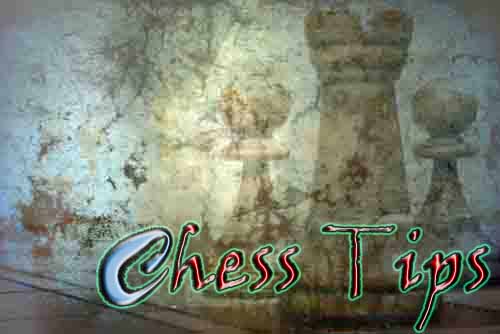
Many people feel intimidated by the game of chess. They feel that it is a game for intellectuals; however, chess is one of the fairest games out there. There is no dice used to leave the game up to “chance,” and there is no referee involved to possibly “throw” the game. Yes, chess is a thinKing person’s game, but you do not need to have a Calculus degree to master chess. You are the one that calls the shots of your chess pieces. You are the one that can learn various approaches and tactics. The chess game itself is very easy to learn, and could possibly take a lifetime to master with all of the different strategy books available. As a beginning chess player, follow these five simple strategy steps. These steps will provide you with techniques to help the player win the game.
- 1.Slow down your moves by thinKing things through. Often times, beginners are in such a hurry during their turn, they often overlook better vantage points. Also they can overlook obvious mistakes and could quite possibly lose the piece that they just moved.
- 2.Castle your King wherever possible. When you ‘castle’ your King, the unmoved King will either move two places to the right or move two places to the left. Immediately following the King’s move, the unmoved Rook closest to the moved King will then “jump” over the King and will land on the immediate open space next to the King. When you castle your King, you must make sure that there are no pieces, either yours or your opponents, on any square between your King and your Rook. Also, once the King has moved, that piece can no longer castle the rest of the game. That is why you are only allowed one time during the chess game to castle the King.
- 3.Plan your strategy and tactics by at least three moves in advance. Doing so will open up more strategies for you in the long run. By planning ahead during the chess match, this tactic will also help you anticipate your opponent’s next sequential moves and will then possible lead you to a decisive victory.
- 4.Do not attack your opponent prematurely. Doing so may have you losing a few key pieces you will need later on in the game. Always think before you act; weigh out all of your options that are available to you. By avoiding these types of attacks, time will be on your side for the overall long term strategy of the chess game.
- 5.Never sacrifice a piece worth more than one of your lower pieces. Many times beginners will think it is natural to sacrifice a Queen for a Knight. Will that sacrifice of a higher piece really give the upper hand in the chess match?
These top five beginning chess strategies and tactics should be taken as sound advice to build your chess game on. There are plenty of other more advanced tactics available, but for the beginning chess player, these five are the most beneficial for them.


Trackbacks/Pingbacks